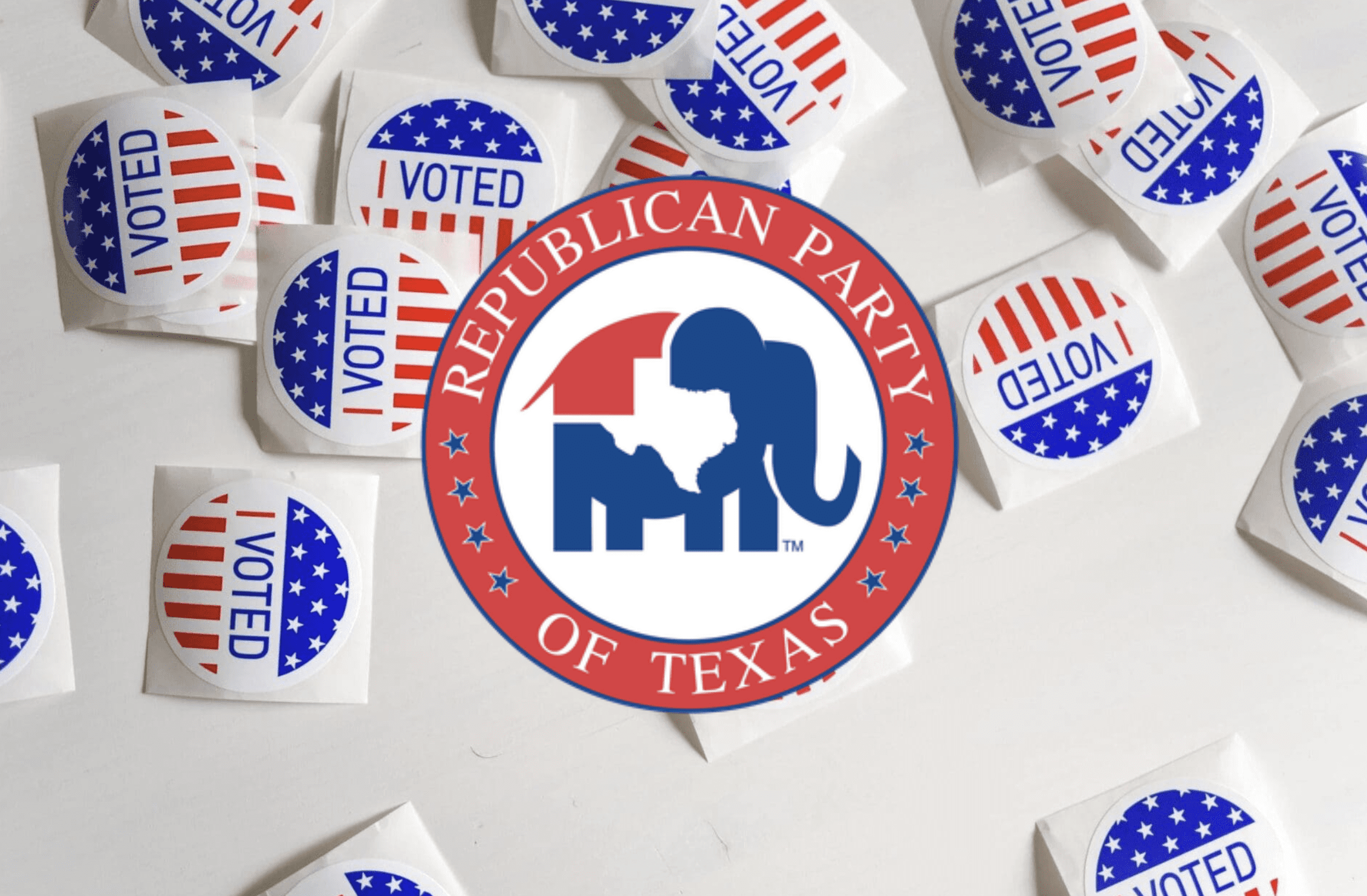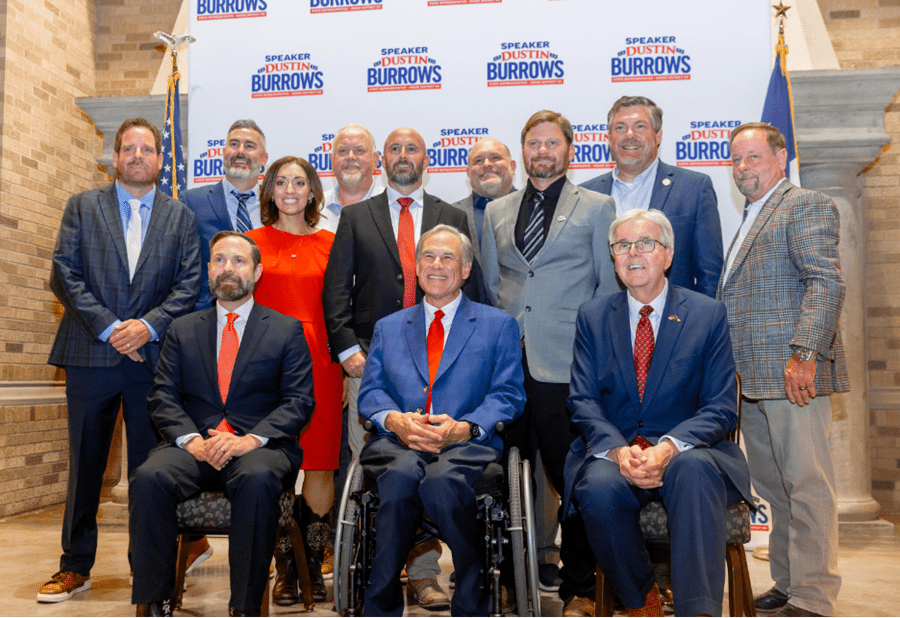While Texas election integrity advocates are disappointed the Republican-controlled Legislature failed to pass their top-priority comprehensive reform bill, lawmakers did manage to pass a handful of key election bills before the regular session ended Monday.
This year’s election reform priorities were much the same as in past sessions: clean up voter rolls, secure mail ballots, stop illegal voter assistance, make sure voting machines produce accurate results, and punish cheaters.
Republican Party of Texas delegates made election integrity their top legislative priority for the 2021 session, after lawmakers failed to pass their priority election reforms in 2019.
Election integrity was the only RPT priority given fast-track emergency status by Republican Gov. Greg Abbott back on February 1.
Lt. Gov. Dan Patrick and House Speaker Dade Phelan also prioritized and publicly endorsed election integrity bills. Yet lawmakers in both chambers failed to consider election integrity (or any of the governor’s emergency items) until the legislative session was beyond the first 60 days.
The Senate passed five of its seven RPT-priority election integrity bills, all in April. Two made it through the House and to the governor’s desk.
The House passed four of its 16 RPT-priority bills, one in April and three more in May (including two Senate companions considered in lieu of House bills). Only one went to the governor.
A couple of other key bills not designated as priorities by the RPT also made it to the governor’s desk, as did at least one measure opposed by grassroots activists.
What Passed
House Bill 574 by State Rep. Greg Bonnen (R–Friendswood) was the first RPT-priority election integrity bill to finally pass both chambers. Originally crafted to make all election fraud crimes felonies, the final version of the bill creates two new election fraud offenses—intentionally counting invalid votes and failing to count valid votes—and makes them second-degree felonies.
HB 574 passed the House on April 16, passed the Senate May 12, and was sent to the governor’s desk on May 20.
House Bill 2283 by State Rep. Phil King (R–Weatherford) restricts outside cash influencing how Texas elections are run. It wasn’t an RPT priority, as the millions of “ZuckBucks” Facebook founder Mark Zuckerberg funneled to select election offices last fall hadn’t become an issue prior to the party’s 2020 convention. But a ban on using third-party money to administer elections is considered a key election integrity reform.
The final bill limits private donations to county officials for use in administering elections to $1,000 unless approved by the secretary of state, governor, lieutenant governor, and speaker.
HB 2283 passed the House April 29, passed the Senate May 25, and went to the governor on May 31.
Senate Bill 598 by State Sen. Lois Kolkhorst (R–Brenham) is an RPT priority carried over from last session that drew bipartisan support. It requires all Texas voting systems to produce auditable paper trails by September 2026, initiates risk-limiting audits, and offers state funds to help counties buy or upgrade equipment. It also confirms that voting systems cannot be capable of connecting to a network or permit wireless communication.
SB 598 unanimously passed the Senate on April 12. It passed the House with near-unanimous support on May 26 and went to the governor May 31.
Senate Bill 1111 by State Sen. Paul Bettencourt (R–Houston) clarifies voters must register at a place they actually inhabit—not at a post office box or commercial address—and may not establish residency to influence the outcome of an election.
The bill was one of the former Harris County voter registrar’s “Integrity 7” bills. It wasn’t an RPT priority but was filed in response to a 2018 discovery of voters registered at UPS stores and other private P.O. box addresses and casting votes in districts where they didn’t live.
SB 1111 passed the Senate April 28, passed the House May 25, and was sent to Abbott on May 27.
Senate Bill 1113, another of Bettencourt’s Integrity 7 bills, authorizes the secretary of state’s office to withhold state funding from county election officials who fail to follow rules for canceling registrations of ineligible voters. Holding election officials accountable to following the law was one of the RPT’s priority election-policy goals.
SB 1113 passed the Senate on April 12, passed the House May 24, and was sent to the governor on May 29.
Lawmakers also passed at least one measure that election integrity advocates oppose: a partial revival of mobile voting, or “rolling polling,” which involves repeatedly moving temporary polling stations from place to place during the early voting period.
Texas Democrats had sued to restore mobile voting after the legislature banned the practice in 2019, but a federal court ruled against their claim last month.
Earlier this session, State Rep. Travis Clardy (R–Nacogdoches) filed House Bill 2149 to restore the easily manipulated practice in “rural” counties with fewer than 100,000 residents (more than 200 of the state’s 254 counties). Clardy’s bill stalled in the Senate, but on May 26 the Senate inserted the measure into his House Bill 3107 with an amendment by State Sen. Drew Springer (R–Muenster) that allows rural counties to move temporary polling places every two days. HB 3107 was sent to the governor on June 1.
What Didn’t Pass
Lawmakers failed to pass a multitude of key House and Senate election reforms, including most of the RPT-priority bills.
The biggest failure was Senate Bill 7, the top-priority comprehensive reform dubbed the Election Integrity Protection Act of 2021 that contained dozens of voting security measures sought by election integrity advocates.
The final version, called a conference committee report, was a mashup of the two chambers’ top-tier “omnibus” bills, SB 7 by State Sen. Bryan Hughes (R–Mineola) and House Bill 6 by State Rep. Briscoe Cain (R–Deer Park).
It also included provisions from other bills that lawmakers had failed to pass, such as voter ID for voting by mail that aligned with requirements for in-person voting.
After spending the entire session (minus the extra six weeks afforded by emergency status) maneuvering the bill through the legislative process, Republican lawmakers managed to position SB 7 on Sunday’s final House calendar of the session with just hours remaining to pass bills.
At that point, Democrats were able to kill the bill by simply leaving the House chamber, breaking the two-thirds quorum needed to take a final vote.
Abbott released a statement Sunday night saying election integrity would be part of a special session agenda:
I declared Election Integrity and Bail Reform to be must-pass emergency items for this legislative session. It is deeply disappointing and concerning for Texans that neither will reach my desk. Ensuring the integrity of our elections and reforming a broken bail system remain emergencies in Texas. They will be added to the special session agenda. Legislators will be expected to have worked out the details when they arrive at the Capitol for the special session.
It’s unclear when the referenced special session will take place.
In the meantime, Democrats in Texas and nationally will likely keep demagoguing the GOP-priority voting legislation, while election integrity advocates remind the Republican-led legislature they expect reforms to pass that make it easy to vote and hard to cheat.
Texas Scorecard tracked the progress of key election integrity bills in the House and Senate throughout the regular 87th Legislative Session.





